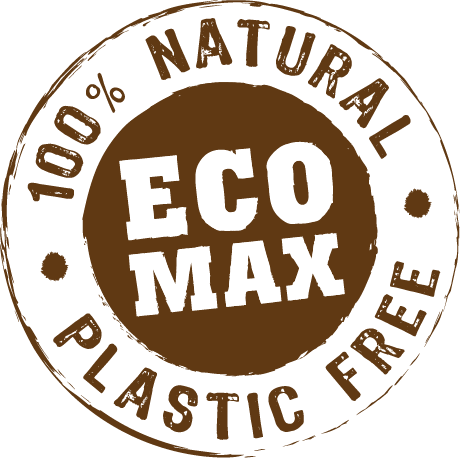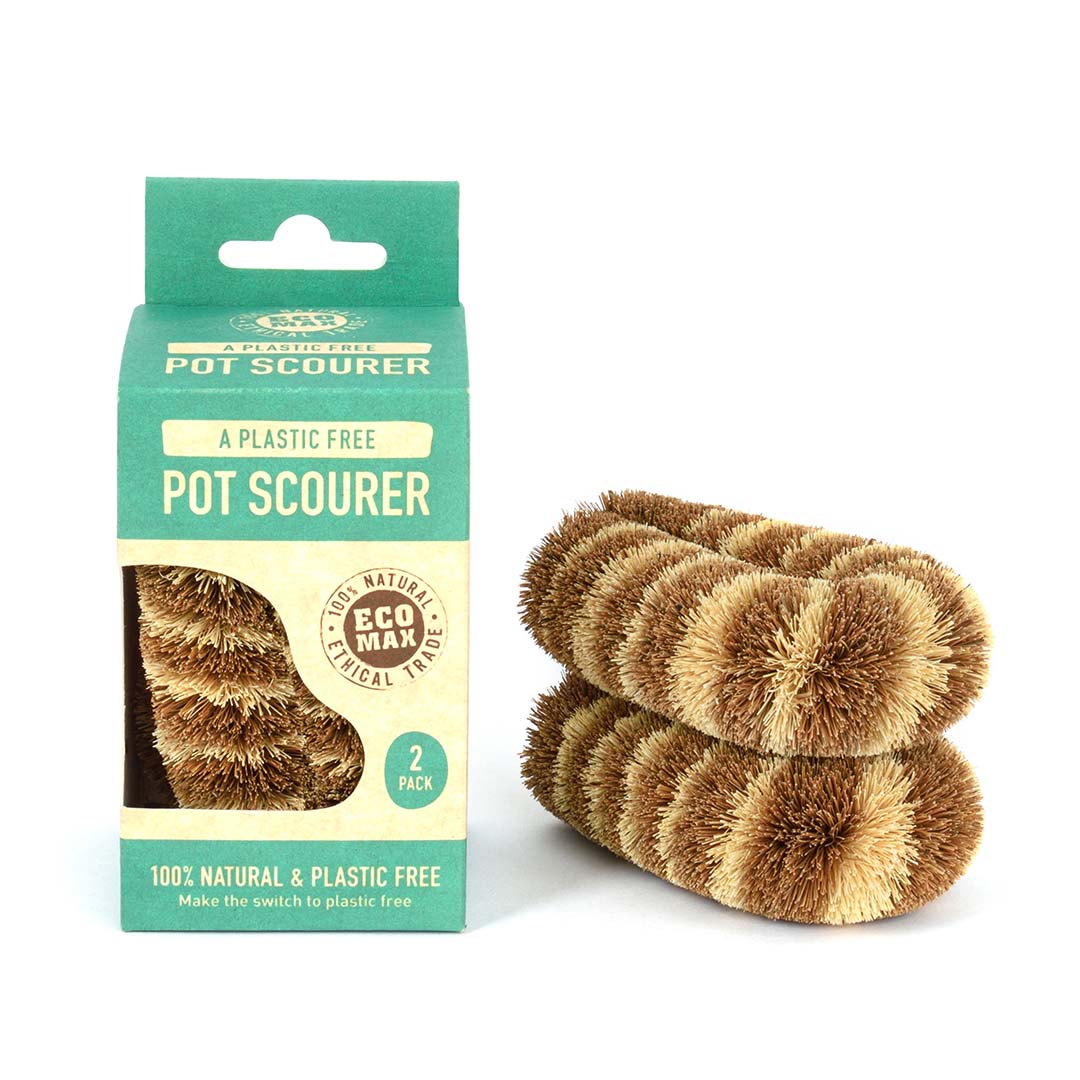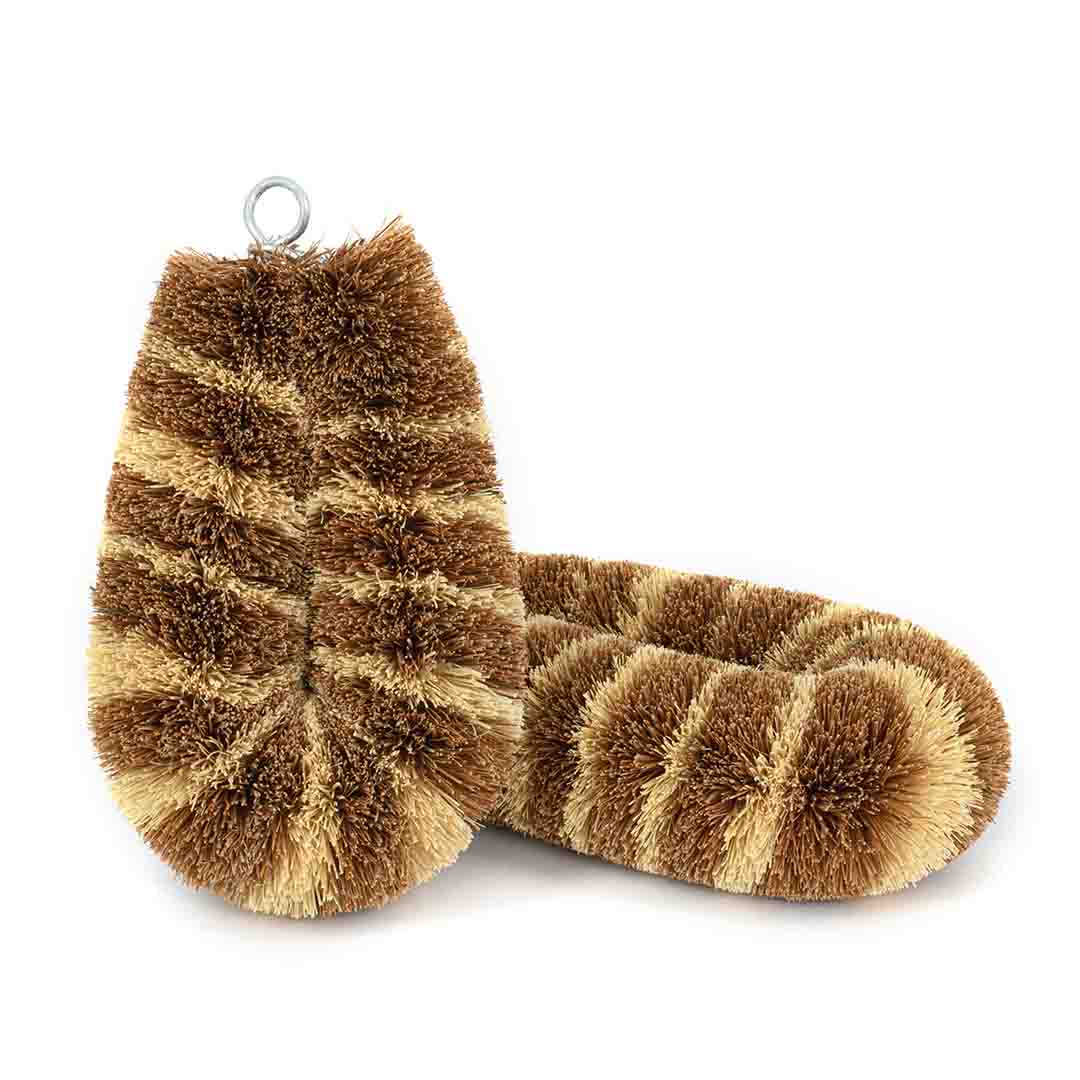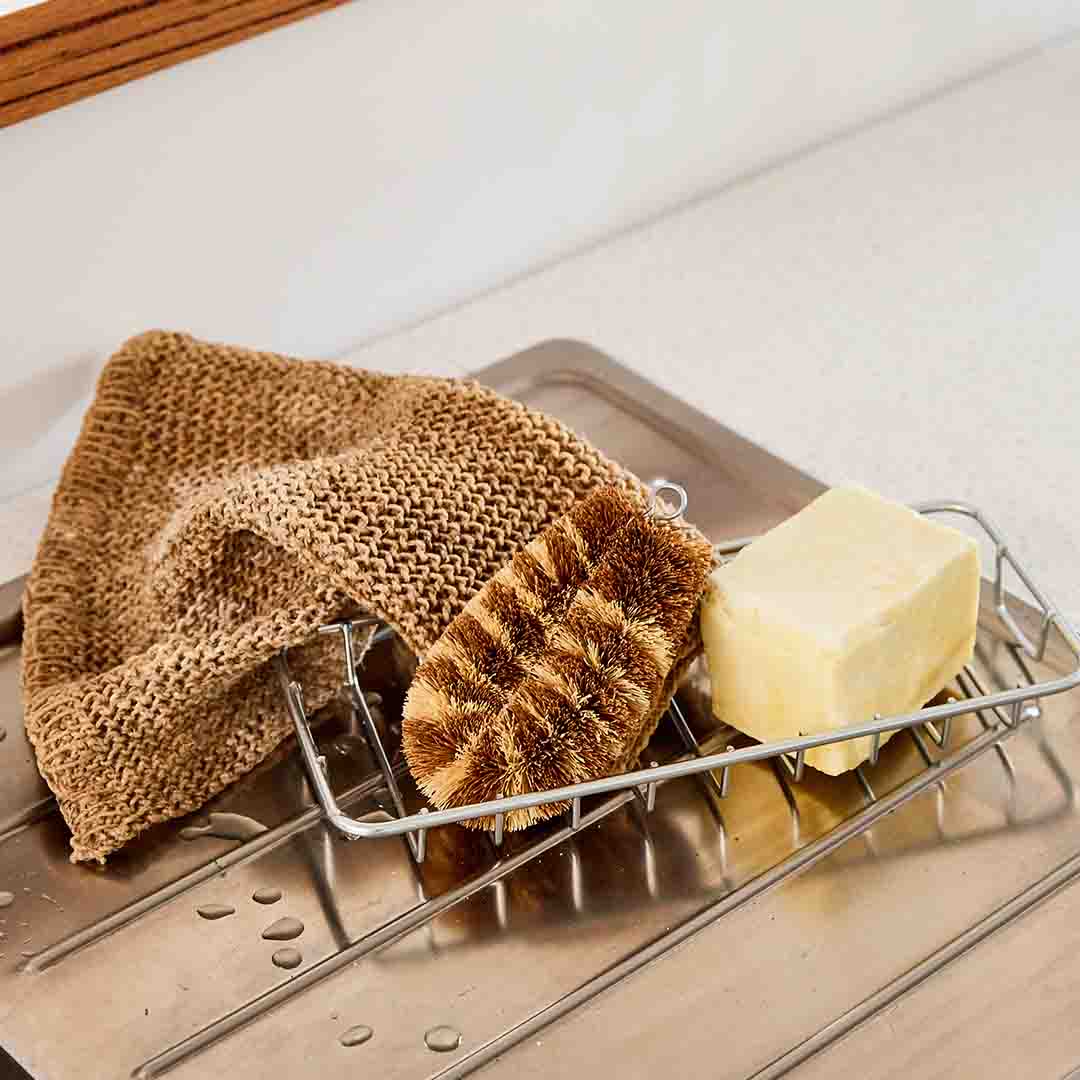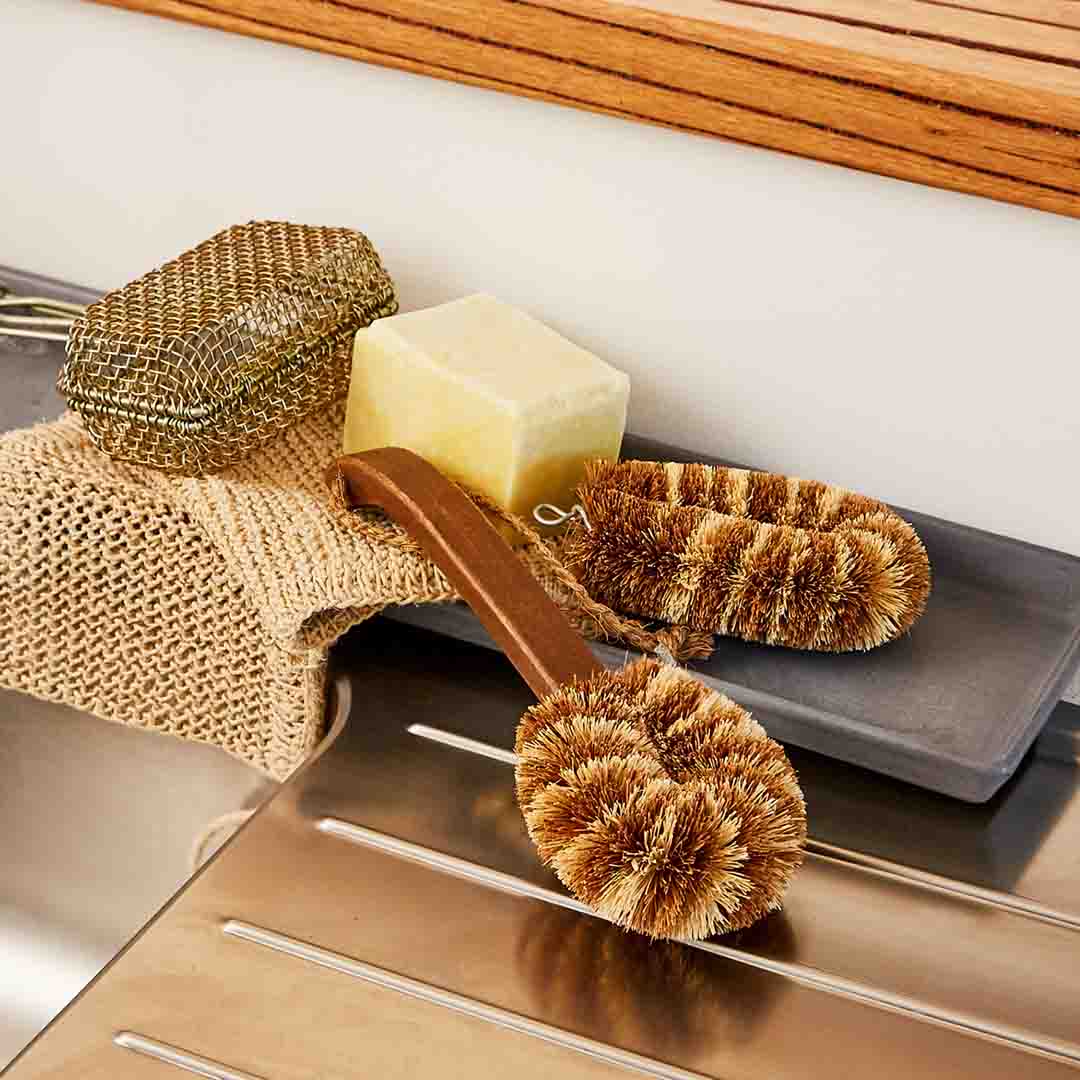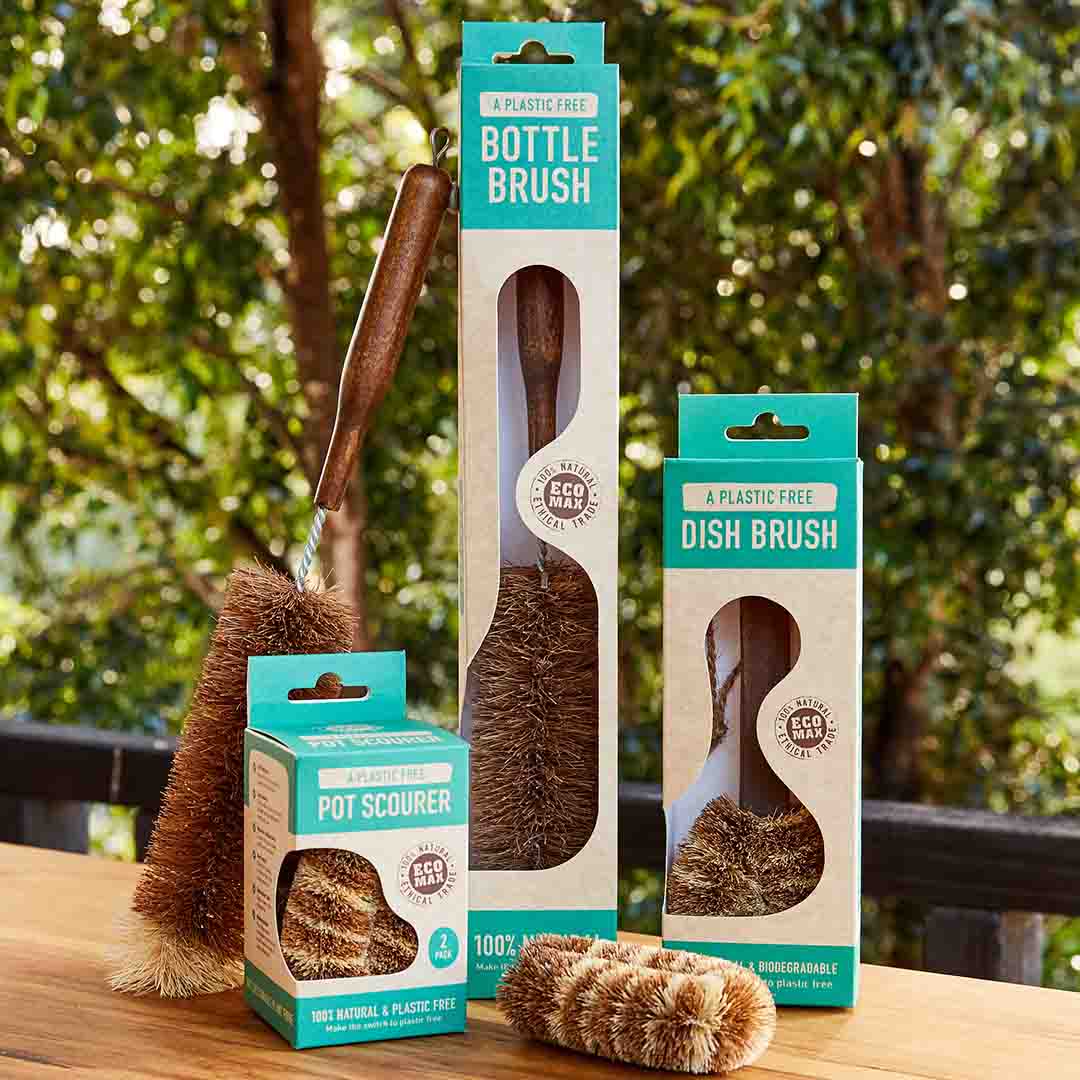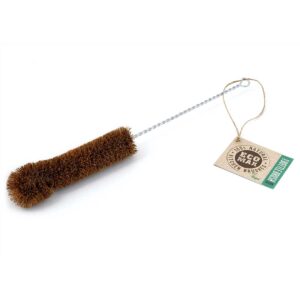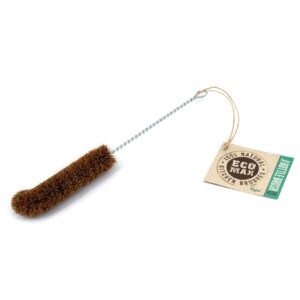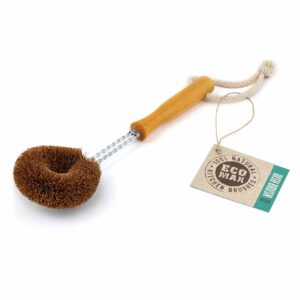Our Premium range of ECOMAX Brushes are designed make a statement to those new to the plastic-free community, with eye-catching and easy to read info on the benefits and uses printed on each box, customers are able to easily evaluate the best brush for their needs.
The boxed range will stand straight and proud on your shelves or free standing display area or hang neatly from their sturdy hang-sell tab. With packaging made from FSC certified paper, printed using vegetable inks and with a plastic free viewing window the customer can be assured that they are making an ethical and sustainable purchase.
Key features:
- Plastic free – means zero microplastic pollution
- Ethically Handmade – supporting women producers in Sri Lanka
- Vegan Certified – no hidden animal products
- Eco-friendly plastic free packaging – printed with vegetable inks on FSC-certified paper
- 100% natural coconut fibre – made from the outer husk of mature coconuts, a by-product of the coconut industry
- Long-lasting – coconut fibre keeps its shape, strength and scrubability
- Naturally Antibacterial – always smells fresh and mould free
- Non-greasy – fats and oils don’t congeal on the surface, they simply wash off
- Non-Abrasive – Will not scratch surfaces
- Dishwasher Safe – Heat resistant and easy to clean
- Galvanised Wire – so your brush will never rust
- Biodegradable – Compost to breakdown naturally
Perfect for cleaning:
Cleans all surfaces without scratching such as enamelware, stainless steel, cast iron, timber breadboards and non-stick pans, even delicate surfaces such as natural bench tops.
The bristles easily reach hard to clean places – graters, mesh strainers, thermomix or stove tops.
The tough fibres are great for scrubbing off baked on food and stubborn stains
Give your Scourer a second life after the kitchen, cleaning the bbq, pets bowls or outside jobs
Care of brush:
Rinse and place in your dish rack to dry.
Dishwasher safe.
End of life:
Once your dish brush has reached the end of its life, throw it in the compost bin to breakdown naturally. No need to remove the wire, the coconut fibres will be eaten by micro-organisms, the timber handle and cotton cord will decompose over time and the remaining wire can be recycled when the compost is spread.
